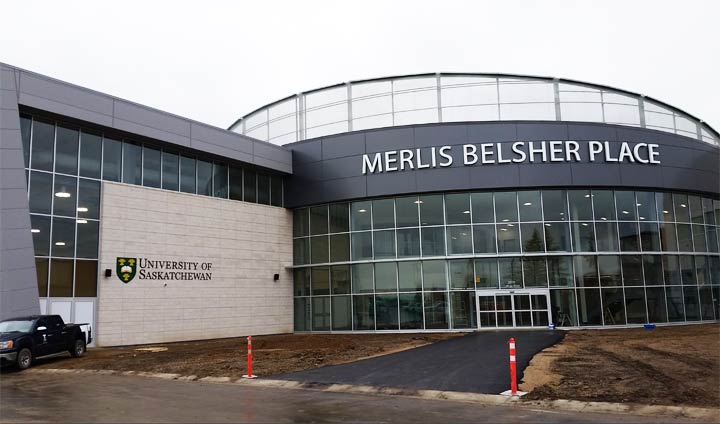Field hospitals are not part of the COVID-19 surge plan released on Thursday, according to the Saskatchewan Health Authority (SHA).

The health authority announced it’s moving forward with the next phase of its plan to meet the expected demand for coronavirus patients in the next two weeks.
Potential field hospitals, located at Evraz Place in Regina and Merlis Belsher Place in Saskatoon, were previously announced to ensure additional capacity in the event of a later surge in COVID-19 cases.
“At this point in time, we are not in the process of opening the field hospitals but we are preparing teams,” SHA CEO Scott Livingstone said.
“As we see the numbers rise, as we see hospitalizations and ICU admissions go up, we will use that same forecasted model to determine when we start escalating services and including the opening of field hospitals … which isn’t an integral component of this plan (announced Thursday).
“But there is work on the ongoing basis with respect to the training and identifying the staff we would need for the field hospitals.”
- Life in the forest: How Stanley Park’s longest resident survived a changing landscape
- ‘Love at first sight’: Snow leopard at Toronto Zoo pregnant for 1st time
- Carbon rebate labelling in bank deposits fuelling confusion, minister says
- Buzz kill? Gen Z less interested in coffee than older Canadians, survey shows
The chief of SHA’s emergency operation centre, Derek Miller, said via video at a press conference that work has been done to identify what skill sets would be required for staff deployed into the field hospitals.
“Just keep in mind the type of patient that would be admitted into the field hospital would be individuals who require care, but not necessarily at the level that would be received in an acute environment so that they would be able to receive that safely in this kind of more austere care environment,” Miller said.
“In terms of training and lining people up to be able to move into the field hospitals … this is kind of at the end of the road for us in terms of our response plan. And by that point, we would have deployed hundreds of people across the system into all of the other steps going up to that.
“By the time we actually head into the field hospital, we’ll be deploying staff from, I think, a multitude of different areas in order to make sure we can actually deliver that level of service as needed in a field hospital.”
In the province, 128 people are currently in hospital with COVID-19 — 104 are receiving inpatient care and 24 are in intensive care.
Miller said there are a number of pre-determined variables being monitored that would ultimately trigger the potential field hospitals from admitting patients.
“The key to making a decision on actually activating the field hospital would be: ‘what are the projections looking like in terms of the modelling information?’; the current case trajectory; when we think that we’re going to potentially need it; and then ‘how long does it take us to activate it?’” Miller said.
“Over the last number of weeks, we have worked to reduce the amount of time we need to activate the field hospital as much as possible by making sure that all the equipment and oxygen systems and everything we need is set up as well as identifying the various clinical processes and so on, that need to be in place in order to actually activate it.
“So we’re as close as we possibly can without actually pulling the trigger on activation.”
Health officials said there were 259 new cases in the daily update on Thursday, with the overall total for the province growing to 9,244 since the first case was reported in March. They added the new seven-day average of daily cases is 269.
There have been 54 COVID-19-related deaths in Saskatchewan.
Questions about COVID-19? Here are some things you need to know:
Symptoms can include fever, cough and difficulty breathing — very similar to a cold or flu. Some people can develop a more severe illness. People most at risk of this include older adults and people with severe chronic medical conditions like heart, lung or kidney disease. If you develop symptoms, contact public health authorities.
To prevent the virus from spreading, experts recommend frequent handwashing and coughing into your sleeve. They also recommend minimizing contact with others, staying home as much as possible and maintaining a distance of two metres from other people if you go out. In situations where you can’t keep a safe distance from others, public health officials recommend the use of a non-medical face mask or covering to prevent spreading the respiratory droplets that can carry the virus. In some provinces and municipalities across the country, masks or face coverings are now mandatory in indoor public spaces.
For full COVID-19 coverage from Global News, click here.





Comments